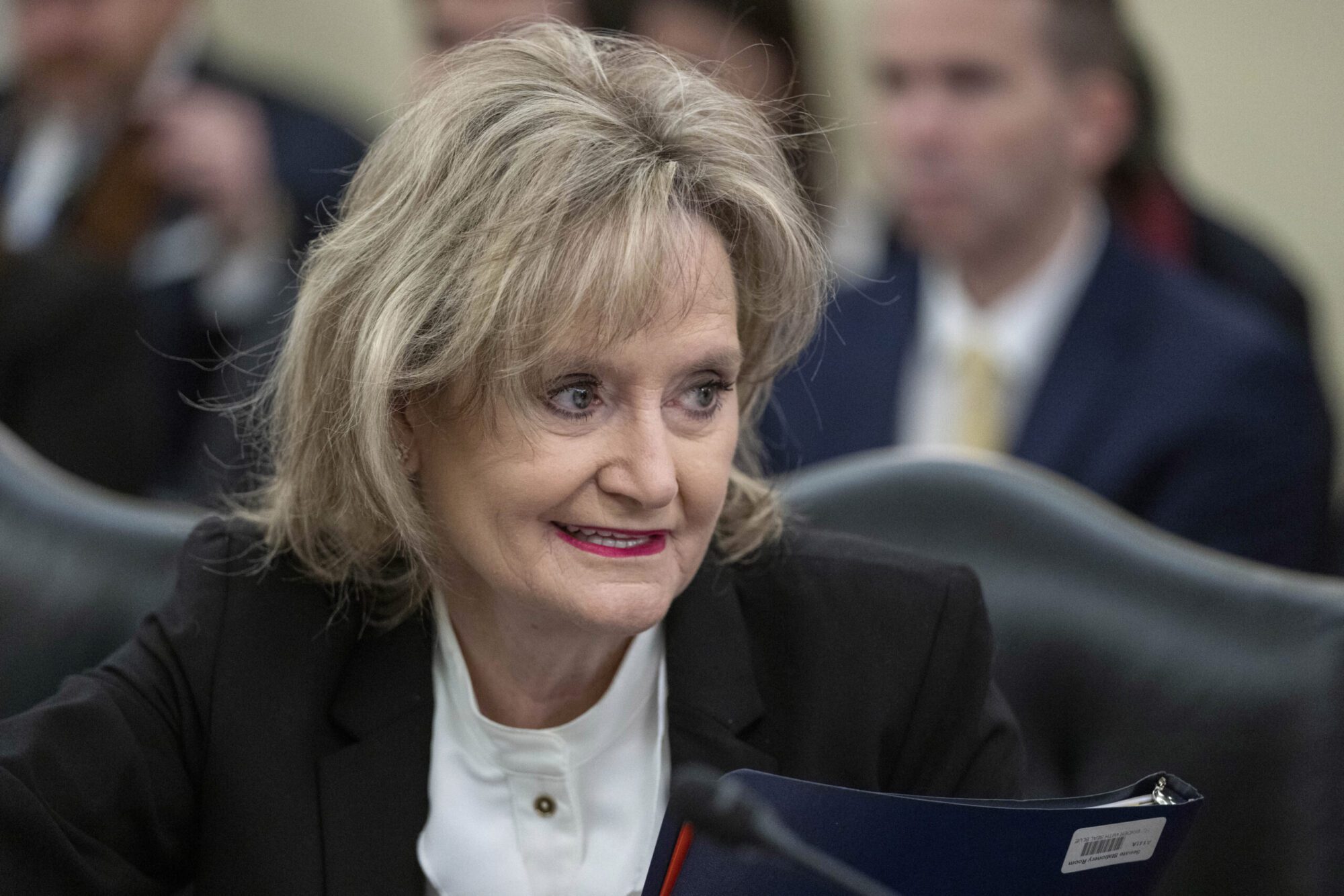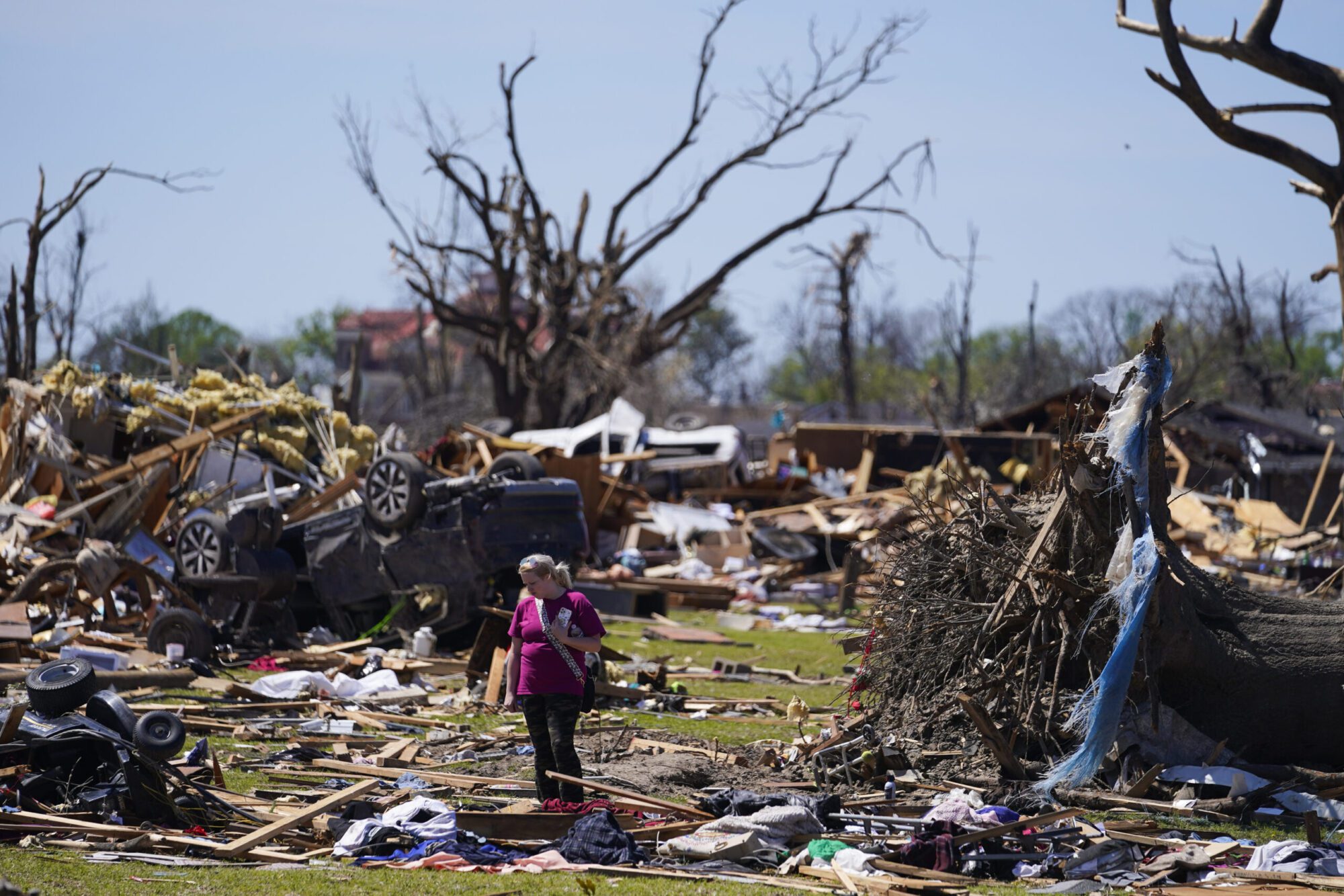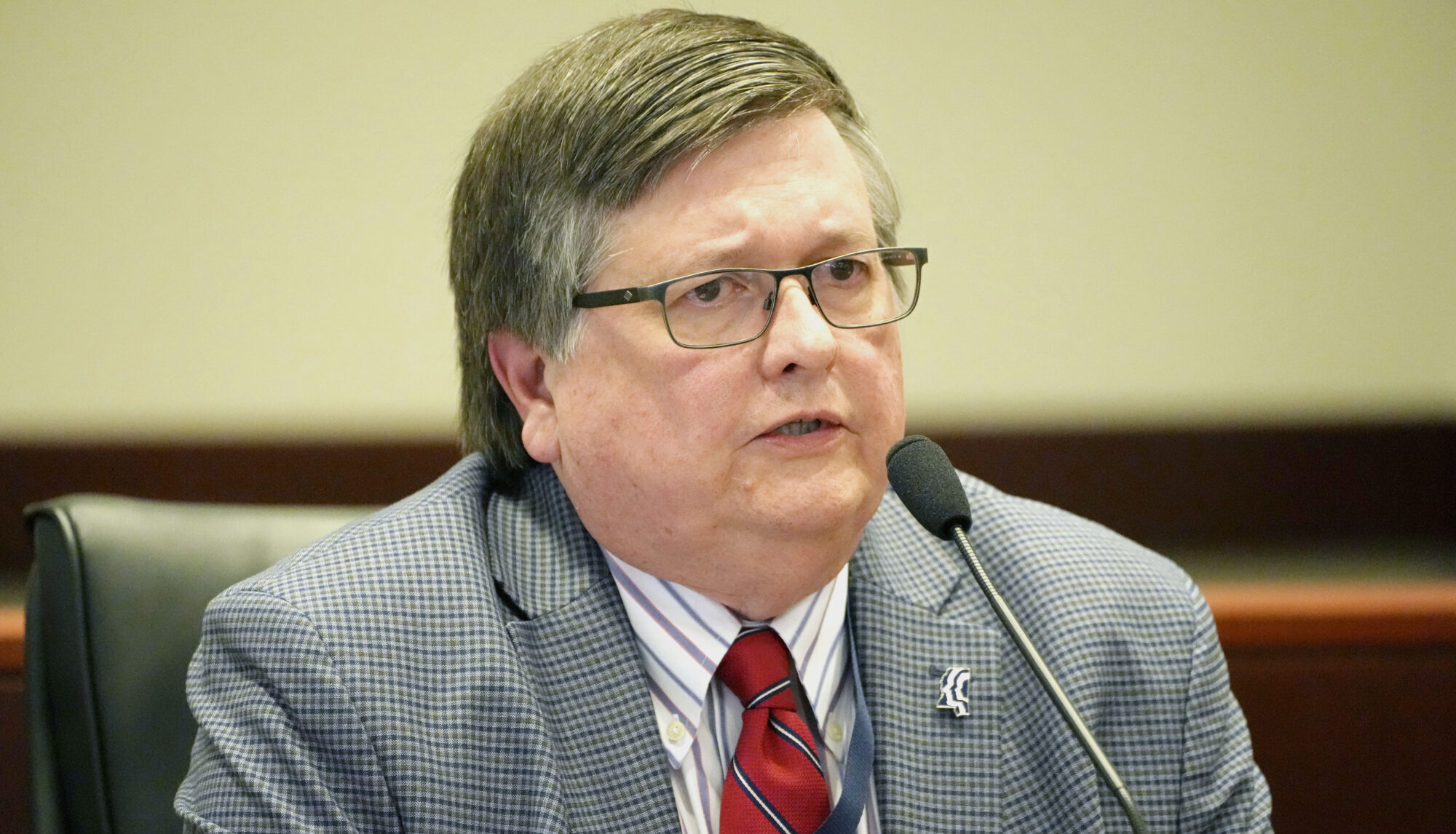
Mississippi Gov. Tate Reeves speaks to reporters, Sunday, March 26, 2023 in Rolling Fork, Miss., about the Friday night tornado that hit Rolling Folk, Miss., and other areas. Deanne Criswell, right, Administrator for the Federal Emergency Management Agency, and U.S. Sen. Roger Wicker, R-Miss., left, were among the federal officials that joined local officials in touring one of the neighborhoods hit by the tornado. (AP Photo/Rogelio V. Solis)
The storms over the last week have left nearly a dozen communities decimated, residents displaced, and several dead.
On Tuesday, Governor Tate Reeves increased the State of Emergency to cover Pontotoc, DeSoto, Tishomingo, Lee, and Tunica Counties. These communities impacted are in addition to the others that were affected by the severe storms which occurred across northern Mississippi.
Governor Reeves’ State of Emergency can be found here.
The most recent storms resulted in one death. Damage was done to 182 homes, eight businesses and six farms.
“It is heartbreaking to see the destruction caused by this storm,” said Governor Tate Reeves. “My prayers are with the families impacted. I want everyone to know that the state of Mississippi stands ready to support these communities in every way possible as they seek to rebuild and recover.”
This was the second major wave of tornadoes to hit Mississippi in March. The first caused massive damage to communities like Rolling Fork, Silver City and Amory. A similar State of Emergency was also issued by Governor Reeves as damage assessments rolled in. State and Federal aid came upon the assessment of damage, including a visit by President Joe Biden and First Lady Jill Biden.
RELATED: President Biden to visit Mississippi community devastated by tornado
The Mississippi Legislature allocated $18.5 million for additional relief to the communities hit by the tornadoes. Out of that, $7 million went to the Mississippi Emergency Management Agency (MEMA) in order to receive matching federal funds.
Governor Reeves directed all state agencies to discharge their emergency responsibilities as deemed necessary and set forth in Mississippi’s Comprehensive Emergency Management Plan.











